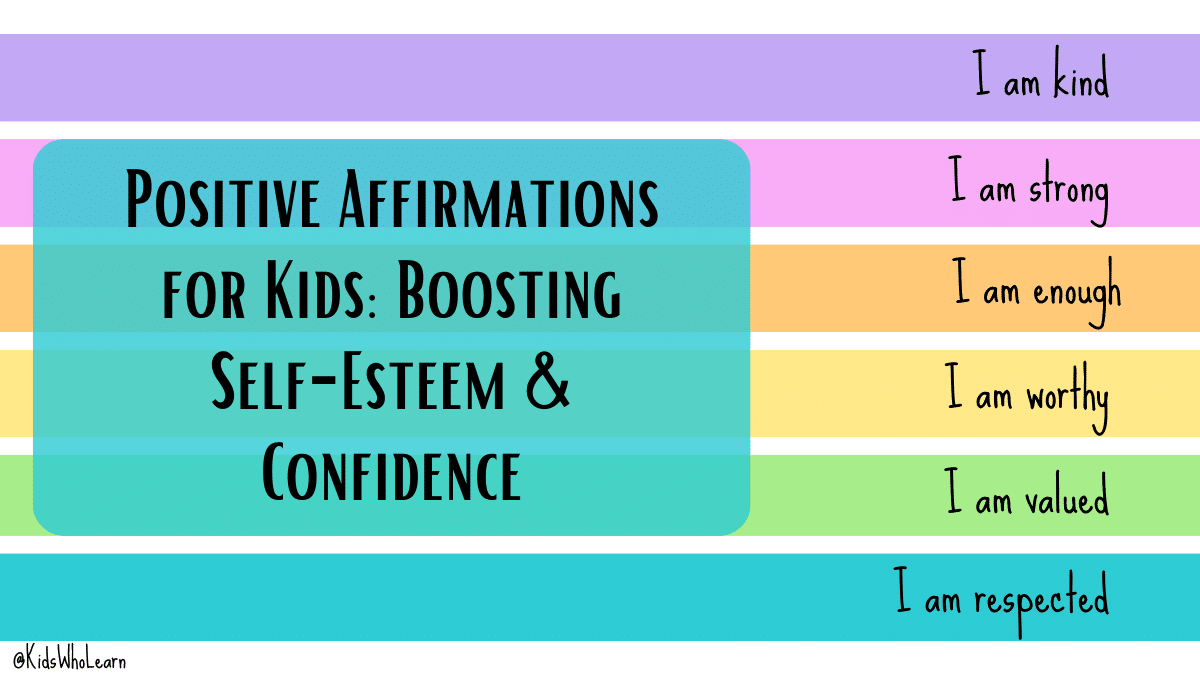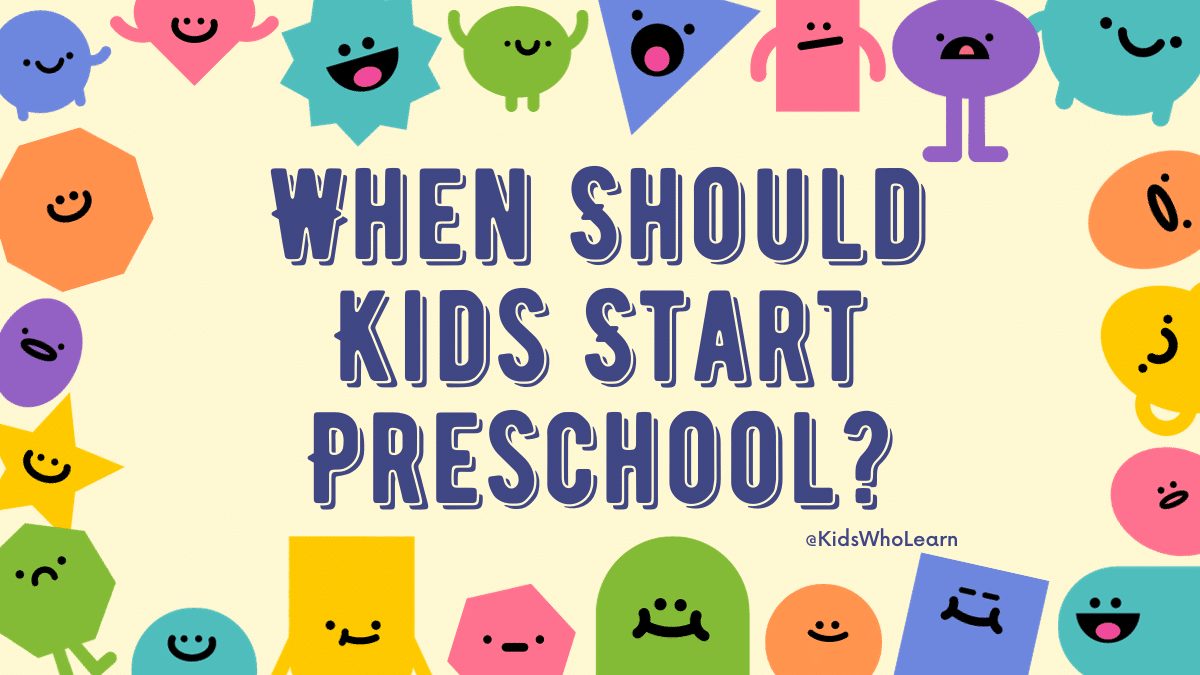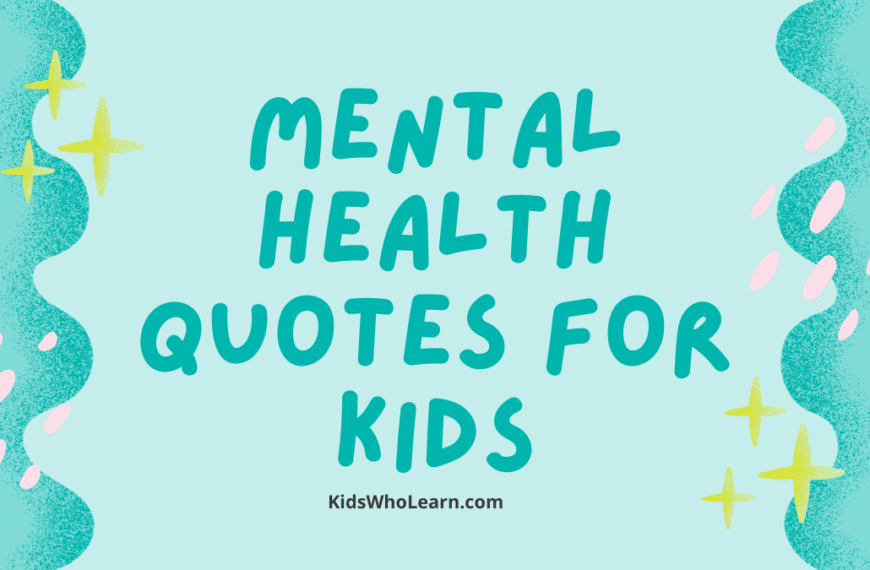Positive affirmations are a powerful tool for building self-esteem and confidence in children. They are simple, positive statements that can help children focus on their strengths and abilities, and remind them of their own worth and value. By using positive affirmations regularly, children can develop a positive mindset and learn to approach challenges with a sense of optimism and resilience.
Positive affirmations can be used in a variety of ways with children, such as repeating them aloud, writing them down, or incorporating them into daily routines. They can be tailored to fit a child’s individual needs and interests, and can be used to address specific challenges or areas of self-doubt. For example, a child who is struggling with math might use an affirmation like “I am good at solving problems” or “I am becoming more confident in my math skills.”
Research has shown that using positive affirmations can have a range of benefits for children, including improved self-esteem, reduced anxiety, and increased motivation. By incorporating positive affirmations into your child’s daily routine, you can help them develop a strong sense of self-worth and resilience that will serve them well throughout their lives.
Understanding Positive Affirmations
Positive affirmations are statements that help you focus on your strengths and abilities. They are positive statements that you can use to help you feel better about yourself and your life. Positive affirmations can be used by kids of all ages to help them feel more confident, happy, and successful.
When you use positive affirmations, you are training your brain to focus on positive thoughts and beliefs. This can help you feel more positive and optimistic about your life. Positive affirmations can also help you develop a growth mindset, which means that you believe that you can learn and grow through your experiences.
Here are some examples of positive affirmations that you can use:
- I am confident and capable.
- I am loved and valued.
- I can learn and grow from my mistakes.
- I am worthy of success and happiness.
- I am strong and resilient.
You can use these affirmations or come up with your own. The key is to choose statements that feel true and empowering to you. You can say your affirmations out loud, write them down, or repeat them silently to yourself.
Positive affirmations can be especially helpful during times of stress or uncertainty. When you are feeling anxious or overwhelmed, repeating a positive affirmation can help you feel more calm and centered. By focusing on positive thoughts and beliefs, you can improve your mood and outlook on life.
Overall, positive affirmations are a simple but powerful tool that can help kids (and adults) feel more confident, happy, and successful. By using positive affirmations regularly, you can train your brain to focus on the positive and develop a more positive mindset.
Importance of Positive Affirmations for Kids
Positive affirmations are powerful tools that can help children develop a positive self-image and boost their confidence. By repeating positive statements to themselves, children can change their thought patterns and create a more optimistic outlook on life. Here are some reasons why positive affirmations are important for kids:
Boosting Self-Esteem
Positive affirmations are a great way to boost a child’s self-esteem. When children repeat positive statements to themselves, they start to believe them. This can help them develop a more positive self-image and feel more confident in their abilities. For example, saying “I am smart and capable” can help a child feel more confident when tackling a difficult task.
Enhancing Positive Thinking
Positive affirmations can help children develop a more positive outlook on life. By focusing on positive thoughts and beliefs, children can learn to see the good in every situation. This can help them feel happier and more content with their lives. For example, saying “I am grateful for all the good things in my life” can help a child focus on the positive aspects of their life, rather than dwelling on the negative.
Improving Behavior
Positive affirmations can also help children improve their behavior. By repeating positive statements to themselves, children can learn to control their thoughts and emotions. This can help them stay calm and focused in stressful situations, and make better choices when faced with difficult decisions. For example, saying “I am in control of my actions” can help a child take responsibility for their behavior and make positive changes.
In conclusion, positive affirmations are a powerful tool that can help children develop a positive self-image, enhance their positive thinking, and improve their behavior. By incorporating positive affirmations into their daily routine, children can create a more optimistic outlook on life and feel more confident in their abilities.
How to Teach Kids Positive Affirmations
Teaching kids positive affirmations is an excellent way to help them develop a healthy self-image and build self-confidence. Here are a few tips on how to get started.
Creating Age-Appropriate Affirmations
When creating affirmations for kids, it’s essential to keep them age-appropriate. Younger children may need simpler, more concrete affirmations, while older children may benefit from more abstract affirmations. Here are a few examples of age-appropriate affirmations:
- For younger children: “I am strong and brave,” “I am kind and helpful,” “I am loved and cared for.”
- For older children: “I am capable of achieving my goals,” “I am confident in my abilities,” “I am worthy of love and respect.”
Making Affirmations a Habit
To make affirmations a habit, encourage your child to say them daily. Make it a part of their morning or bedtime routine. You can also create affirmation cards for your child to read throughout the day. Here are a few ways to help your child make affirmations a habit:
- Set a reminder on their phone or tablet to say their affirmations.
- Encourage them to say their affirmations in front of a mirror.
- Make it a family activity by saying affirmations together.
Using Visual Aids
Visual aids can be a helpful tool when teaching kids positive affirmations. You can create posters or charts with affirmations that your child can see every day. You can also create affirmation jars with slips of paper containing positive affirmations that your child can read when they need a boost of confidence. Here are a few other visual aids you can use:
- Affirmation coloring pages
- Affirmation bookmarks
- Affirmation stickers
Teaching kids positive affirmations is a powerful tool that can help them build self-confidence and develop a healthy self-image. By creating age-appropriate affirmations, making affirmations a habit, and using visual aids, you can help your child develop a positive mindset that will serve them well throughout their lives.
Examples of Positive Affirmations for Kids
Encouraging your child to use positive affirmations is a great way to boost their self-esteem and confidence. Here are some examples of positive affirmations that you can teach your child:
Affirmations for Self-Love
- I am enough just the way I am.
- I love myself for who I am.
- I am proud of myself and my accomplishments.
- I am worthy of love and respect.
- I am grateful for all the good things in my life.
Affirmations for Confidence
- I am confident in my abilities.
- I believe in myself and my dreams.
- I am brave and can face any challenge.
- I am strong and capable.
- I am a leader and can make a difference.
Affirmations for Resilience
- I can learn from my mistakes and grow stronger.
- I am resilient and can overcome any obstacle.
- I am adaptable and can handle change.
- I am patient and can wait for good things to come.
- I am optimistic and can see the good in every situation.
Teaching your child to use positive affirmations can help them develop a positive mindset and build resilience. Encourage them to repeat these affirmations daily and watch them grow into confident, resilient, and happy individuals.
Challenges and Solutions in Implementing Affirmations
Resistance from Kids
When introducing positive affirmations to kids, it is not uncommon to encounter some resistance. Some children may not understand the concept of affirmations, while others may feel uncomfortable or embarrassed saying positive statements about themselves. Here are some solutions to overcome this challenge:
- Explain the concept: Take the time to explain to your child what affirmations are and how they can help build self-confidence and self-esteem. Use simple language and give examples of positive statements they can say to themselves.
- Make it fun: Turn affirmations into a game or a fun activity. For example, you can create affirmation cards with colorful drawings or stickers, or you can make a game out of saying affirmations in silly voices.
- Lead by example: Model positive self-talk and affirmations yourself. When your child sees you practicing affirmations, they may be more inclined to join in.
Inconsistency in Practice
Another challenge in implementing affirmations with kids is inconsistency in practice. It can be difficult to remember to practice affirmations regularly, especially when life gets busy. Here are some solutions to help you stay consistent:
- Set a reminder: Use a phone app or a physical reminder, like a sticky note, to remind you and your child to practice affirmations daily.
- Make it a routine: Incorporate affirmations into your daily routine, such as saying them during breakfast or before bedtime.
- Involve others: Encourage friends or family members to practice affirmations with you and your child. This can help keep everyone accountable and motivated.
Remember that introducing affirmations to your child is a process, and it may take time for them to fully embrace the practice. Be patient and consistent, and celebrate small victories along the way.
Conclusion
Incorporating positive affirmations into your child’s daily routine can have a significant impact on their self-esteem and overall well-being. By encouraging them to speak positively about themselves and their abilities, you are helping to build a strong foundation for their future success.
Remember to keep the affirmations age-appropriate and tailored to your child’s specific needs and interests. Encourage them to come up with their own affirmations and to practice saying them daily.
Additionally, consider incorporating other positive practices into your child’s routine, such as mindfulness exercises and gratitude journaling. By fostering a positive mindset, you are setting your child up for a lifetime of happiness and success.
Overall, the power of positive affirmations should not be underestimated. By consistently practicing them with your child, you are helping to instill a sense of confidence and self-worth that will serve them well throughout their lives.







